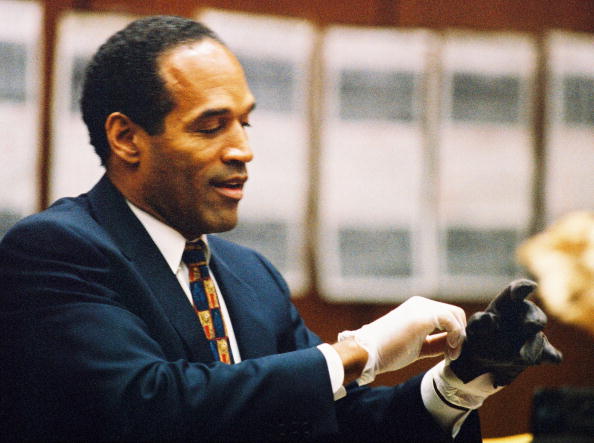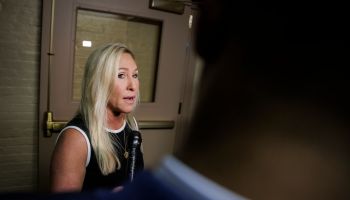WASHINGTON – Desperate for jobs and cool toward President Barack Obama, working-class whites are flocking to Republicans, turning a group long wary of Democrats into an even bigger impediment to the party’s drive to keep control of Congress.
An Associated Press-GfK poll shows whites without four-year college degrees preferring GOP candidates by twice the margin of the last two elections, when Democrats made significant gains in the House and Senate. The poll, conducted last month, found this group favoring GOP hopefuls 58 percent to 36 percent — a whopping 22 percentage-point gap.
In 2008, when Obama won the presidency, they favored GOP congressional candidates by 11 percentage points, according to exit polls of voters. When Democrats won the House and Senate in 2006, the Republican edge was 9 percentage points.
Compared with better-educated whites, working-class whites tend to be older and more conservative — groups that traditionally lean Republican and are uneasy with the young president’s activist governing. Their wariness is reinforced by a prolonged economic funk that has disproportionately hurt the working class and shown scant signs of improvement under Obama and Congress’ majority Democrats.
Though accustomed to trailing among working-class whites, Democrats can hardly afford further erosion from a group that accounts for about 4 in 10 voters nationally. Their GOP preference is in contrast to whites with college degrees, who the AP-GfK Poll shows are split evenly between the two parties’ candidates, and to minorities, who decisively back Democrats.
Many of these working-class voters were dubbed Reagan Democrats in the 1980s, when some in the North and Midwest who had previously preferred Democrats began supporting conservative Republicans. Many never warmed to Obama during the 2008 presidential race, when he said some bitter small-town residents cling to guns and religion for solace. They preferred Hillary Rodham Clinton, his rival for the Democratic nomination, by 2-1 and in the general election backed Republican nominee John McCain by 18 points.
“They try to make everybody think the economy is better, and it isn’t,” Jennifer Moore, 40, a school bus driver from Amherst, Va., said of Democrats. “Gas prices are going up, food is going up and people working for the minimum wage can’t make it.”
In the AP-GfK poll, working-class whites were likelier than white college graduates to say their families are suffering financially and to have a relative who’s recently lost a job. They are less optimistic about the country’s economy and their own situations, gloomier about the nation’s overall direction and more critical of how Democrats are handling the economy.
“Democrats are more apt to mess with the middle class and take our money,” said Lawrence Ramsey, 56, a warehouse manager in Winston-Salem, N.C.
They are likelier than better-educated whites to dislike Obama personally and are more negative about his leadership. Over half say he doesn’t understand ordinary Americans’ problems. They are also likelier to disapprove of Obama’s performance as president, including more than two-thirds who are unhappy with his stewardship of the economy.
“The country hasn’t come up the way it should have under Obama,” said Barbara Schwickrath, 64, a clothing store employee from Brooksville, Fla.
Polls from around the country show the impact of working-class whites’ disaffection with Democrats. While a Marist Poll shows both of New York’s Democratic senators running strongly, one trails and the other is even among white working-class voters. Quinnipiac University polls show clear advantages with this group for GOP Senate candidates in Florida, Pennsylvania and Ohio.
To appeal to them, Obama has used nationally televised chats in people’s backyards to emphasize his efforts to lift the economy. The Democratic-led Congress passed legislation with tax cuts and loans for small businesses before breaking for the election. On the campaign trail, Democrats pounced on Connecticut GOP Senate candidate Linda McMahon’s refusal last week to rule out reducing the minimum wage to help ailing companies.
“Democrats have to make it a choice between two individual candidates, not a referendum on do you like where things are or not, because no one likes where things are,” said Democratic pollster Dave Beattie.
Republicans had their own message, unveiling a “Pledge to America” that broadly promised tax and spending cuts and criticizing congressional leaders for adjourning without voting to extend expiring income tax cuts.
A TV ad by Wisconsin Republican House contender Sean Duffy features a man in an orange hardhat and safety vest getting flung off a rolling log into a pond. “Our working folks have been tossed aside,” Duffy says in the ad.
One ray of hope for Democrats is that 28 percent of working-class whites in the AP-GfK Poll say they may still switch candidates. Republicans say it’s too late.
“Obama and Democrats have had almost two years to try to get things back on track,” said GOP pollster David Winston.
The AP-GfK Poll was conducted Sept. 8-13 by GfK Roper Public Affairs & Corporate Communications and involved landline and cell phone interviews with 1,000 randomly chosen adults. The margin of sampling error is plus or minus 4.2 percentage points. Included were interviews with 416 whites without college degrees, for whom the error margin is plus or minus 6.6 points.
RELATED STORIES
Latino Voters May Skip Midterm Elections
Obama Unifying Dem. Voters By Nationalizing Midterm Elections?
















